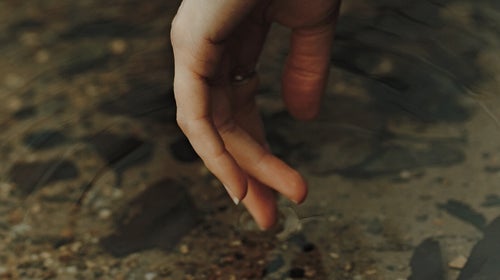I Woke Up with Cold Urticaria
People develop sensitivities to just about everything these days, but can you really be allergic to frigid temperatures? Our writer takes us on a wild—and potentially life threatening—journey to find out.
New perk: Easily find new routes and hidden gems, upcoming running events, and more near you. Your weekly Local Running Newsletter has everything you need to lace up! .
A month before my 30th birthday, I start getting hives whenever I’m in the water. And during that summer, I am always in water. My boyfriend, Matt, and I are taking a big road trip, from the coast of Rhode Island all the way up to the Bonaventure River in Quebec. He is a fly-fisherman, and I want to learn. But each time I stand knee-deep in the water, my feet begin to itch. The hives form in a line up a vein in my foot. It’s confusing, not to mention alarming. I get out of the water and say, “But it can’t be the water. It has to be something in the water, right?”
We’ve been saying this ever since we left Rhode Island, where we were certain it was caused by something strange in the ocean. Maybe it’s the salt, Matt said. Maybe it’s the sunscreen, I said. And we agreed that it was probably the sunscreen. The ocean is the source of all life, an organic and beautiful thing, and the sunscreen was the cheapest one at CVS. Maybe this is why my mother always bought the good stuff. So I bought the good stuff, we drove north, and yet the hives continued.
“Are you sure you’re not allergic to anything?” Matt asks, looking at my arms and my stomach with horror. The hives cover every inch of my skin, make me appear covered in bubble wrap.
“No,” I say. “I just had an allergy test.”
Earlier that summer, a nurse injected me with pollen, cat dandruff, cockroach dust, three times over, in increasing quantities. My body accepted the cockroach dust without question. I was strangely disappointed, if only because it seemed right that a body should reject something like that.



